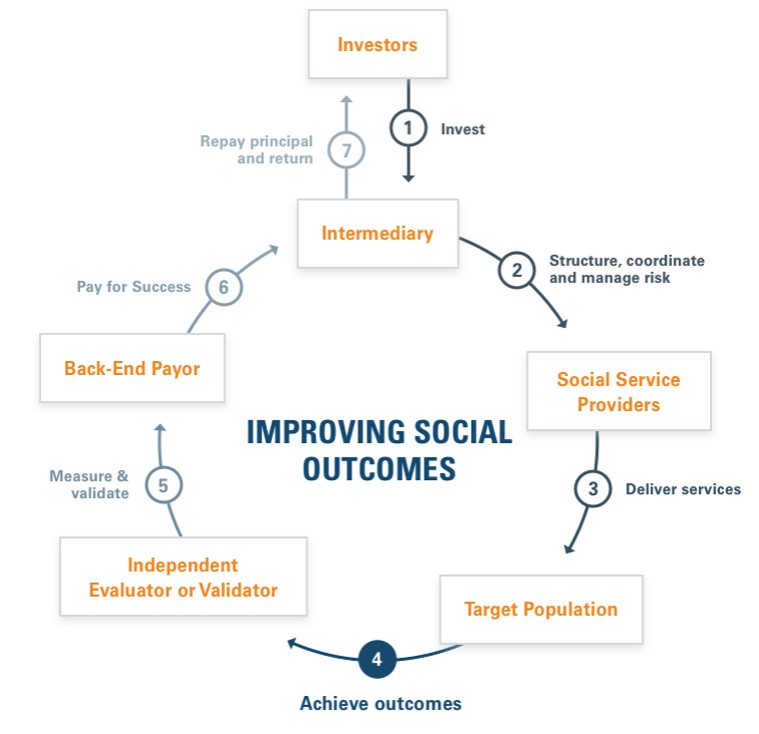What If We Only Paid for Success?
How can nonprofits create sustainable programming? How can impact investors ensure scalability? How can governments spread dollars furthers to actually fix social issues?
Pay for Success answers all three questions at once. Pay For Success (PFS), a financing mechanism that allows public entities to pay only for successful outcomes – according to pre-determined measures. Outside funders front the money for programming until results can be measured, and public dollars pay for the results. If targets are not met, the public entity does not have to pay or pays less. (The Nonprofit Finance Fund put together the handy flow chart above.)
This week, Georgia Social Impact Collaborative (GSIC) brought Mary Wickersham, Founder of Social Impact Solutions, and Debby Kasemeyer, a Senior Vice President at Northern Trust, to Atlanta to meet with leading foundations and nonprofits, as well as government officials. They have helped with feasibility studies, transaction structuring, providing the investment capital and the implementation of more than half-a-dozen PFS deals around the country.
What we found is that there are three main reasons to consider PFS as a financing option:
1] Pay for Outcomes: Instead of paying for a program up front, the government would only pay for a program that works.
2] Shift Risk and Increase Revenues: Instead of putting all the burden on politicians and government, PFS builds coalitions of individuals and organizations who are committed to solving public problems. PFS aligns priorities and shares responsibility, which provides avenues for better decision-making.
3] Scale Evidence-based Policymaking and Smart Expenditures: Instead of spending large sums of taxpayer dollars on the same problems we had yesterday, with little hope they will be fixed tomorrow, why not leverage others’ money with the confidence that we’ll achieve better outcomes? PFS increases the available capital, by including private and philanthropic investors, to implement evidence-based solutions that work.
PFS ultimately changes how governments consider policies; instead of focusing on input, it focuses on outcomes. PFS pushes governments to pay for preventative, instead of corrective, policies.
It isn’t always “all or nothing” – other financing mechanisms, such as Pay-for-Performance (or Progress), include hybrids of payments sources and triggers. These innovative tools are convincing leaders in business, philanthropy and government to explore partnerships and think more collaboratively than ever before.
After all, shouldn’t we all seek to address systemic issues head on instead of relying on band-aids to solve our problems? Maybe then we’ll see some policy successes.

